Questões de Língua Inglesa do ano 2016
Lista completa de Questões de Língua Inglesa do ano 2016 para resolução totalmente grátis. Selecione os assuntos no filtro de questões e comece a resolver exercícios.
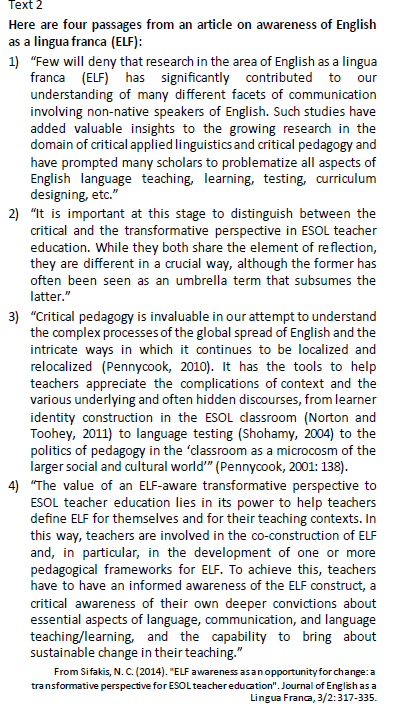 Critical literacy emphasizes the need to use language as a vehicle for social change. One of the strategies a teacher may use for this purpose is
Critical literacy emphasizes the need to use language as a vehicle for social change. One of the strategies a teacher may use for this purpose is
- A. reading poems out loud in the classroom.
- B. listing vocabulary in English used in Brazilian adverts.
- C. watching videos and discussing controversial themes.
- D. memorizing forms of leave-takings in the foreign language.
- E. filling out an authentic real immigration form without questioning it.
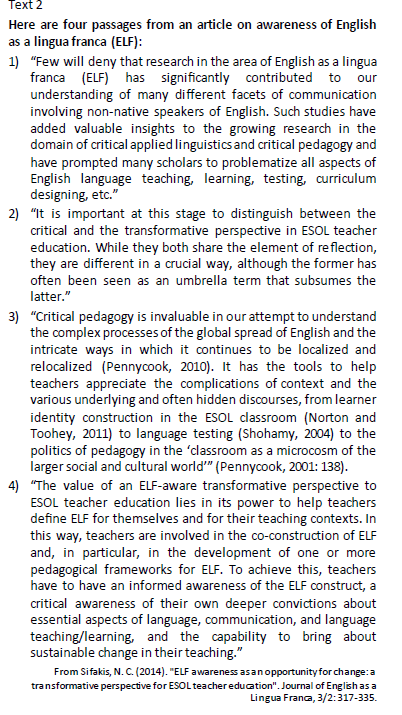 The move from English as a Foreign Language (EFL) to English as a Lingua Franca (ELF) has promoted
The move from English as a Foreign Language (EFL) to English as a Lingua Franca (ELF) has promoted
- A. stricter grammatical rules.
- B. the eradication of local dialects.
- C. focus on multicultural identities.
- D. the building of territorial boundaries.
- E. English native speakers empowerment.
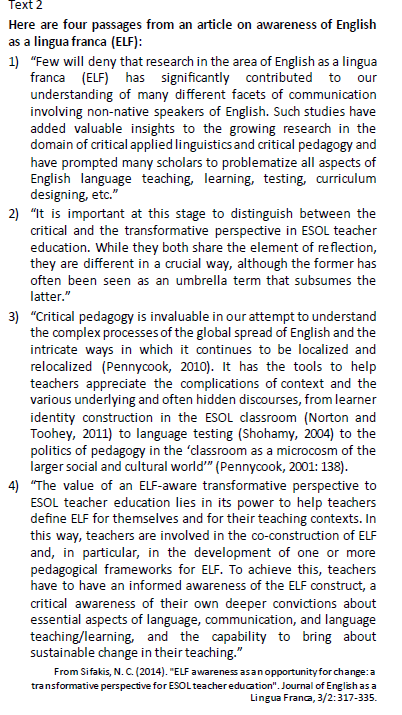
Based on Siqueira (2011), analyse the statements below.
I. ELF has derived from native speakers and is a unique variety of English.
II. Most interactions in ELF today are between non-native speakers.
III. ELF has become a diverse, multiple and nomad language.
IV. It is possible to codify a general variety of ELF.
Choose the correct answer:
- A. Only I is correct.
- B. Only II is correct.
- C. Only I and II are correct.
- D. Only II and III are correct.
- E. Only III and IV are correct.
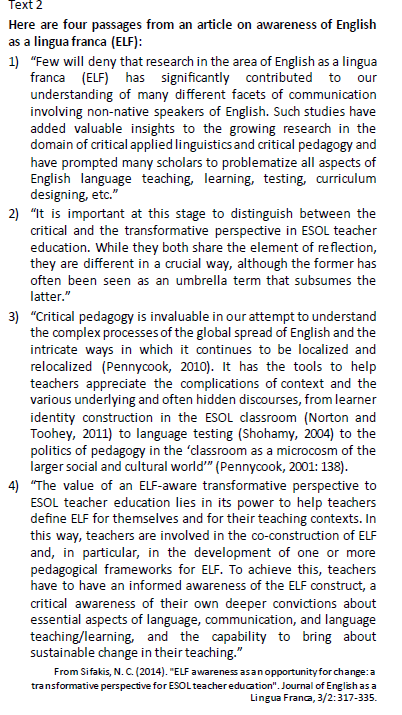
Consider the following statement: the teaching of a foreign language [ ] tends to place non-natives locally involved in the process of teaching/learning in a subordinate position when confronted with the authority attributed to the natives in what is considered their own language (our translation) (Jordão, 2013, p. 280).
Here, the writer is attributing this view to
- A. notions of global English.
- B. different situated practices.
- C. definitions of World Englishes.
- D. early communicative approaches.
- E. concepts of English as a lingua franca.
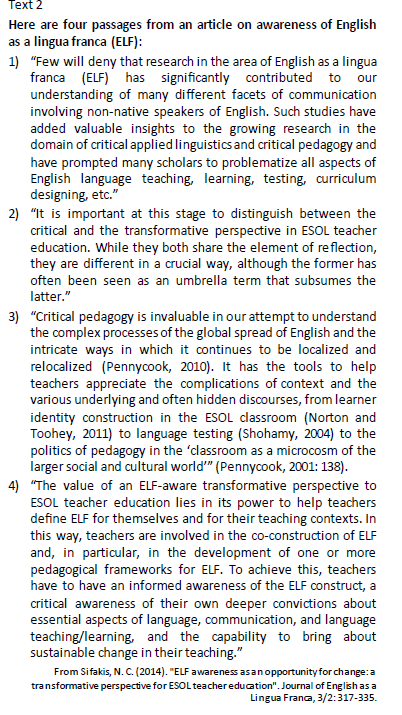
It is currently assumed that the teaching/learning of English as a Foreign Language in Brazilian public schools has not been successful (Jordão, 2013, p. 286-287). Read the statements below and mark them as TRUE (T) or FALSE (F).
( ) Teachers lack of qualification may contribute to this perception.
( ) This is because local cultures and discursive practices are disregarded.
( ) To solve this problem, basic rules of grammar and vocabulary should be taught.
The statements are, respectively:
- A. F, F and T.
- B. T, T and F.
- C. F, T and F.
- D. T, F and T.
- E. F, T and T.
In a classroom situation in which the student asks the teacher if British or American pronunciation should be preferred, the most adequate answer the teacher should give, from a postcolonial orientation, is:
- A. There are no rules any longer as to how to pronounce words.
- B. British pronunciation is preferable as it has set the basis for English speaking.
- C. American pronunciation should be used as most global transactions rely on it.
- D. Pronunciation deserves attention but the focus should be on acknowledging linguistic varieties.
- E. Both British and American pronunciations are valid and will be used as models, showing where they differ.
The statement that best addresses a poststructuralist view of teaching English as an International Language in Brazilian public schools is:
- A. Teaching English in public schools has deteriorated beyond the point of repair.
- B. Native speakers of English should be invited to help design more up-to-date materials.
- C. Easy solutions cannot be found as practice is situated, contextual and collaborative.
- D. Pre-established rules should be set so that students learn the culture of the target language.
- E. New books and materials should be developed by a group of international teachers and experts.
The following exercise, posted on the Internet, asks students to listen, repeat the words and memorize them.
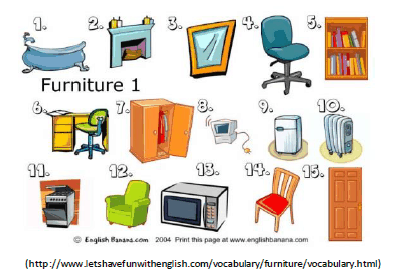
This exercise illustrates
- A. social exchanges.
- B. dialogic teaching.
- C. digital critical literacy.
- D. situational approaches.
- E. dissociation from interaction.
New critical literacy assessment is discussed by Duboc (2016). The only statement that does not reflect this view of assessment is:
- A. Feedback is much more relevant than grading.
- B. Assessment should consider several viewpoints.
- C. Evaluation must be adapted to objective parameters.
- D. Self-evaluation can be an adequate tool for assessing.
- E. Assessment tools should be collaborative and mediated.
The assessment tool that is in line with a critical literacy posture is
- A. graded tests.
- B. dialogue journals.
- C. prescribed checklists.
- D. standardized questionnaires.
- E. copying texts from the Internet.


